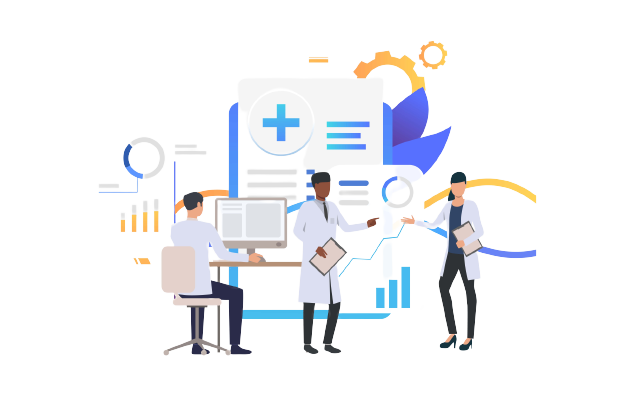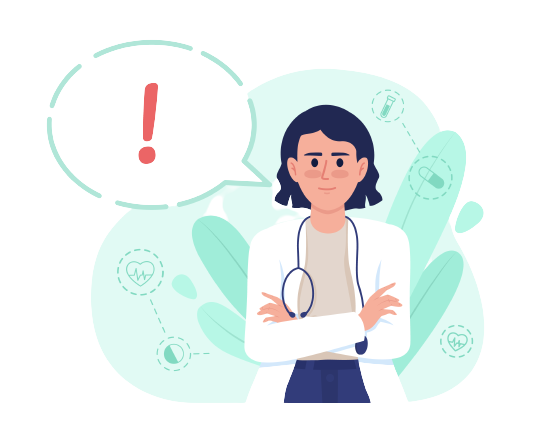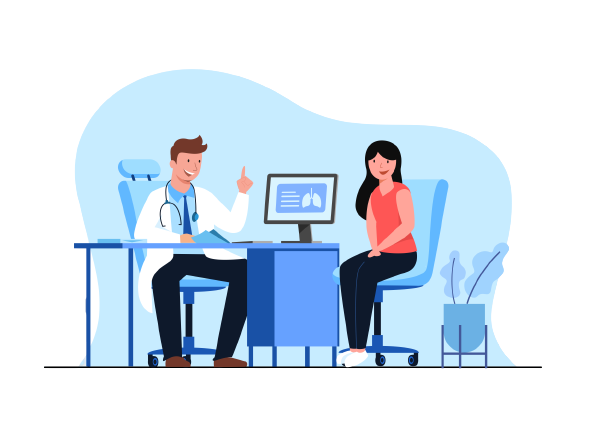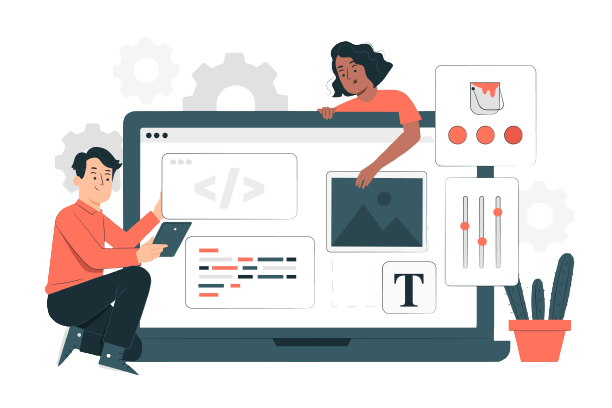
As healthcare professionals, we understand the challenges you face daily, balancing top-notch patient care with managing administrative tasks. But fear not, because we’re here to reveal how the best CRM software can be a game-changer for your clinic.
In this comprehensive blog, we won’t just throw technical jargon at you. Instead, we’ll take a warm and approachable approach, showing you how embracing CRM can make your clinic more efficient and patient-focused. You’ll discover how CRM software can revolutionize your operations and allow you to dedicate more time to what truly matters – caring for your patients.
We’ll start by exploring why CRM software matters in today’s healthcare landscape. But that’s not all! We’ll take you through a friendly tour of essential CRM features you should look for when choosing the perfect software for your unique clinic needs. Don’t worry; we’ll make sure it’s easy to understand, so you won’t feel overwhelmed with tech-speak.
And the excitement doesn’t stop there! We’ve curated a list of top CRM software solutions specially designed for clinics. We’ll compare their strengths and weaknesses, so you can confidently pick the one that aligns best with your clinic’s goals and values.
Are you curious about how CRM can save time, boost productivity, and improve patient satisfaction all at once? We’ve got you covered! Our blog will also dive into practical implementation tips and success stories to inspire you to take that transformative step forward.
So, are you ready to embrace the future of healthcare management? Together, let’s explore the wonders of CRM software for clinics and watch your practice flourish like never before. Welcome to the world of unlimited possibilities!
Why Is CRM Software Important For Clinics and Hospitals?

Clinics and Hospitals face a multitude of challenges that demand efficient management and patient-centric care. Enter CRM (Customer Relationship Management) software – a cutting-edge solution that has overtaken the healthcare industry. But what exactly is CRM, and why is it so essential for clinics?
At its core, CRM software serves as a centralized hub for all patient-related information, interactions, and communication. Gone are the days of scattered spreadsheets and manual record-keeping. With CRM, clinics and hospitals can seamlessly integrate patient data, appointments, and follow-ups, streamlining workflows and optimizing operations.
However, the significance of CRM software goes far beyond organization and administration. The heart of any clinic lies in its relationships with patients. By harnessing CRM tools, clinics can nurture these relationships like never before. Through personalized communication, targeted outreach, and proactive follow-ups, clinics can create a sense of trust and loyalty among patients, ultimately leading to increased patient retention and referrals.
But the advantages don’t stop there. As clinics and hospitals adopt CRM software, they also empower their staff to work more efficiently and collaboratively. From seamless appointment scheduling to task automation, CRM helps optimize clinic workflows, freeing up valuable time for healthcare professionals to focus on providing the best care possible.
Therefore, the importance of CRM software for clinics and hospitals cannot be overstated. As clinics strive to deliver exceptional healthcare experiences, embracing CRM is the surest path to success.
Role of CRM Software in Modern Clinic Management
Managing patient information, appointments, and communication can be overwhelming for clinics and even hospitals. This is where CRM software steps in as a savior. Acting as a centralized hub, CRM software efficiently organizes and stores all patient-related data in one secure place. From medical history to appointment schedules, and even patient preferences, CRM ensures that crucial information is readily accessible to healthcare providers, enabling them to make well-informed decisions and deliver personalized care.
Beyond data organization, CRM enhances clinic management through streamlined workflows and improved communication. It automates routine tasks, such as appointment reminders and follow-ups, which not only saves time for clinic staff but also reduces the risk of errors. Additionally, with enhanced communication features, clinics can engage with patients proactively, fostering stronger relationships and creating a positive patient experience.
Improving Patient Experience: How CRM Software Benefits Clinics

A patient-centric approach lies at the heart of every successful clinic. Best CRM software plays a pivotal role in achieving this by enabling clinics and hospitals to offer a personalized experience to each patient. By capturing patient preferences, history, and feedback, CRM empowers healthcare providers to deliver tailored care that resonates with patients’ individual needs.
Moreover, CRM’s patient engagement tools facilitate effective communication, allowing clinics to keep patients informed about appointments, test results, and follow-ups in a timely and consistent manner. Patients appreciate the sense of being cared for and valued, leading to increased satisfaction and loyalty.
CRM software also empowers clinics to track and monitor patient interactions across multiple touchpoints. This invaluable data provides insights into patient behavior and preferences, allowing clinics to fine-tune their services and marketing strategies. By understanding patient needs and expectations better, clinics can continuously enhance their offerings, ensuring an exceptional patient experience.
Reorganization of Clinic Operations with CRM: Key Advantages and Benefits
Efficiency is the cornerstone of successful clinic management. With the implementation of CRM software, clinics experience a host of advantages that optimize their operations and enhance overall productivity.
One significant advantage of CRM is its ability to automate repetitive tasks, such as appointment scheduling, reminders, and data entry. This automation not only reduces manual effort but also minimizes the risk of errors, contributing to seamless and error-free clinic operations.
Additionally, CRM software facilitates seamless collaboration among clinic staff. With centralized access to patient data, healthcare providers can efficiently coordinate care, ensuring a smooth and coordinated patient journey. This collaborative environment fosters teamwork, increases accountability, and ultimately leads to improved patient outcomes.
Besides, CRM’s reporting and analytics features provide valuable insights into clinic performance. From appointment utilization rates to patient feedback, these data-driven insights allow clinics to make informed decisions and identify areas for improvement.
Understanding the importance of CRM software for clinics is paramount in optimizing patient care and elevating clinic operations.
Essential Features to Consider When Selecting CRM Software for Clinics
Selecting the right CRM software for your clinic can be a game-changing decision that revolutionizes your patient management and clinic operations. To ensure that you make an informed choice, let’s delve into the essential features that you should consider when selecting CRM software for your clinic’s unique needs.
When evaluating CRM software options, certain features stand out as must-haves to optimize clinic efficiency and productivity.
1. One such feature is appointment scheduling and management. Look for a CRM solution that offers seamless appointment scheduling, allows for easy rescheduling or cancellations, and sends automated appointment reminders to patients. This not only saves time for your clinic staff but also minimizes no-shows, maximizing the utilization of your resources.
2. Another crucial feature is contact management, enabling you to maintain a comprehensive database of patient information. An ideal CRM should offer a user-friendly interface for storing patient details, medical history, and preferences. This information will empower your clinic to deliver personalized care and build stronger patient relationships.
3. Workflow automation is an excellent feature when it comes to enhancing clinic efficiency. The ability to automate repetitive tasks, such as sending follow-up messages or post-appointment surveys, frees up valuable time for your staff to focus on delivering exceptional patient care.
Customization and Integration: Tailoring CRM Solutions to Clinic Needs

Every clinic is unique, and a one-size-fits-all approach to CRM may not fully meet your specific requirements. Customization options are vital for tailoring the CRM software to match your clinic’s workflows and preferences. Look for a CRM that allows you to configure fields, forms, and reporting to match your clinic’s processes seamlessly.
Moreover, integration capabilities are crucial for ensuring that your CRM software works in harmony with your existing systems and applications. Seek a CRM solution that easily integrates with your electronic health records (EHR) system, practice management software, or any other essential tools used in your clinic. This integration fosters a unified and streamlined approach to patient management, avoiding data silos and redundant tasks.
Security Matters: Ensuring Patient Data Protection with CRM Software
The security of patient data is of paramount importance in today’s healthcare landscape. As you explore CRM options, prioritize software that adheres to stringent data security standards and complies with healthcare regulations, such as HIPAA (Health Insurance Portability and Accountability Act).
Look for CRM software with robust data encryption, role-based access controls, and audit trails to safeguard sensitive patient information from unauthorized access. Additionally, opt for a CRM solution that offers data backup and disaster recovery features to ensure the safety and integrity of patient data in the event of unforeseen circumstances.
A feature-rich CRM that enhances clinic efficiency, offers customization and integration options and ensures patient data security is the key to unlocking the full potential of your clinic’s operations.
Top CRM Software for Clinics: In-Depth Review
EQUP stands out as a top CRM software solution specifically designed to cater to the unique needs of clinics and hospitals. Here are some key points highlighting why EQUP is an excellent choice for healthcare facilities:
- Tailored for Healthcare: It is purpose-built for clinics and hospitals, understanding the intricate workflows and patient-centric nature of healthcare settings. It offers specialized features and functionalities that align seamlessly with the needs of healthcare providers.
- Comprehensive Patient Management: With EQUP, clinics and hospitals can efficiently manage patient information, appointments, medical history, and treatment plans in a centralized platform. This comprehensive patient management capability streamlines operations and improves patient care.
- Appointment Scheduling and Reminders: It facilitates easy appointment scheduling and automated reminders, reducing no-shows and optimizing the utilization of healthcare providers’ time.
- Personalized Patient Engagement: It enables personalized communication with patients through targeted messages, follow-ups, and post-appointment surveys. This fosters stronger patient relationships and enhances patient satisfaction.
- Efficient Workflow Automation: It automates repetitive tasks, such as sending patient notifications, prescription renewals, and appointment confirmations. This automation saves time for healthcare staff and reduces administrative burdens.
- Seamless Integration: It offers seamless integration with electronic health records (EHR) systems, practice management software, and other essential tools used in healthcare facilities. This integration ensures data consistency and avoids duplicative efforts.
- Customizable to Clinic Needs: It provides customization options, allowing clinics and hospitals to tailor the software to their specific workflows and preferences. This adaptability ensures that the software aligns perfectly with the facility’s unique requirements.
- Data Security and Compliance: It prioritizes patient data security, adhering to strict data encryption and compliance with healthcare regulations like HIPAA. This commitment to security ensures patient information remains safe and confidential.
- Actionable Insights and Reporting: It offers powerful analytics and reporting features that provide actionable insights into clinic performance, patient demographics, and patient interactions. This data-driven approach empowers healthcare facilities to make informed decisions and improve patient outcomes.
- Exceptional Customer Support: It is backed by a dedicated customer support team that provides prompt assistance and guidance to clinics and hospitals. The reliable support ensures a smooth implementation and utilization of the CRM software.
In conclusion, EQUP is a top CRM software solution that caters specifically to the needs of clinics and hospitals. With its tailored features, efficient patient management, and personalized patient engagement, it empowers healthcare facilities to deliver exceptional care, optimize operations, and thrive in the dynamic healthcare sector.
Navigating CRM Implementation Challenges In Clinics & Ways To Overcome Them

Implementing CRM software in clinics can be a transformative process, but it also comes with its fair share of challenges. Here are some common challenges faced during CRM software implementation in clinics and effective ways to overcome them:
1. Resistance to Change
One of the primary challenges in CRM implementation is resistance to change among clinic staff. Some may be apprehensive about adopting new technology or fear disruptions in their familiar workflows.
How To Overcome: To overcome resistance, involve staff early in the process. Conduct training sessions and workshops to familiarize them with the CRM software and its benefits. Address their concerns and provide ongoing support during and after implementation.
2. Data Migration and Integration
Migrating existing patient data from legacy systems or integrating CRM with other clinic tools (EHR, practice management software) can be complex.
How To Overcome: Plan data migration carefully, and consider the expertise of CRM vendors in data integration. Test data integrity before implementation, and have a data backup plan in case of any issues.
3. Customization Challenges
Clinics have unique workflows and requirements, making it essential to customize the CRM software to match their specific needs.
How To Overcome: Choose a CRM software that offers customization options, allowing clinics to tailor the software to their workflows. Involve key stakeholders in the customization process to ensure it aligns with their expectations.
4. Training and Adoption
Proper training is crucial for successful CRM implementation. If staff members are not adequately trained, they may underutilize the CRM, impacting its effectiveness.
How To Overcome: Invest in comprehensive training sessions and provide ongoing support. Consider appointing CRM champions within the clinic who can help other staff members adapt to the software effectively.
5. Data Security and Compliance
Clinics deal with sensitive patient data, making data security and compliance a top priority.
How To Overcome: Choose a CRM software vendor that follows industry best practices for data security and complies with healthcare regulations like HIPAA. Conduct regular security audits to identify and address potential vulnerabilities.
6. Cost Considerations
Budget constraints may pose a challenge for some clinics when implementing CRM software.
How To Overcome: Evaluate the long-term benefits of CRM implementation in terms of improved patient care, increased efficiency, and reduced administrative burdens. Choose a CRM solution that fits the clinic’s budget and offers a good return on investment.
7. Integration with Existing Processes
Integrating the CRM software seamlessly with existing clinic processes can be challenging.
How To Overcome: Involve IT experts during the planning and implementation stages to ensure smooth integration. Conduct thorough testing before going live to identify and resolve any integration issues.
8. Change Management and Communication
Effective change management and communication are crucial for successful CRM implementation.
How To Overcome: Develop a clear communication plan to keep all staff informed about the implementation process, benefits, and timelines. Engage staff in the decision-making process and address their feedback to build a positive approach to change.
In conclusion, while CRM software implementation in clinics may present challenges, the right solutions can help overcome these hurdles and pave the way for a successful CRM integration. With the right approach, clinics can harness the full potential of CRM to enhance patient care, improve operational efficiency, and achieve long-term growth and success.